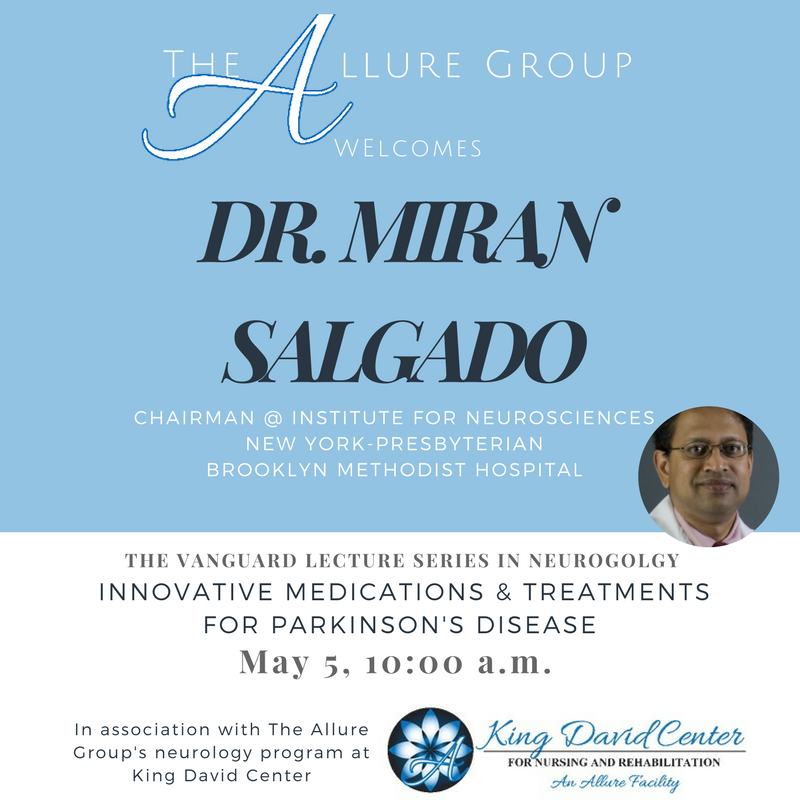I’m honored to announce an exciting event at King David Center for Nursing and Rehabilitation, one of The Allure Group’s leading facilities for state-of-the-art residential care. On Friday morning at 10 AM, King David Center in Brooklyn will welcome Miran Salgado, MD for a continuation of The Vanguard Series In Neurology, part of The Allure Group’s ongoing commitment to offering our residents innovative treatments and leading-edge technology. Dr. Salgado will share his insight regarding the latest medications to treat Parkinson’s disease.

About The King David Center for Nursing and Rehabilitation
King David Center for Nursing and Rehabilitation is a 271-bed, state-of-the-art residential care facility specializing in short-term, post-acute rehabilitation and skilled nursing. Residents concentrate on regaining their strength and independence in a comfortable setting. The dedicated staff prepares individualized plans of care that address the total needs and concerns of each of the resident. King David Center for Nursing and Rehabilitation is located at 2266 Cropsey Ave, Brooklyn, New York 11214.
About Dr. Salgado and Parkinson’s Disease
Dr. Miran Salgado is Chairman of Neurosciences at NewYork-Presbyterian Brooklyn Methodist Hospital. Dr. Salgado has decades of medical experience with neurological disorders. He graduated from the University of Colombo Medical College in Sri Lanka and completed his neurology residency at State University of New York (SUNY) Downstate. He also completed a fellowship in Parkinson’s disease and movement disorders at Columbia Presbyterian Medical Center. He is the recipient of numerous distinctions and awards, including the Lewis S. Pilcher Award from New York Methodist Hospital, and New York Magazine’s annual list of best doctors.
Parkinson’s disease is a type of movement disorder that can affect the ability to perform daily activities. It is chronic, and the symptoms become worse over time. It is characterized by its most common of motor symptoms—tremors stiffness or rigidity of the muscles, and slowness of movement—but also manifests in non-motor symptoms. Researchers now recognize early manifestation signs that may place a person at risk. Loss of smell, depression, constipation, impotence and a certain type of sleep disorder may indicate the disease long before movement-related symptoms occur.
There are an estimated 1 million Americans living with Parkinson’s disease and more than 10 million people worldwide. Most people who develop the symptoms of Parkinson’s disease do so sometime after the age of 50, but Parkinson’s disease can affect younger persons as well.
To learn more, visit KingDavidCenterRehab.com.

